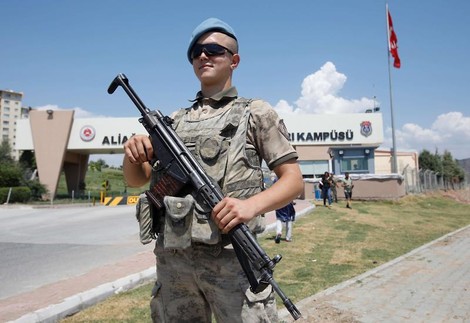Your podcast discovery platform
Curious minds select the most fascinating podcasts from around the world. Discover hand-piqd audio recommendations on your favorite topics.

piqer for: Global finds Globalization and politics Technology and society
Turkish journalist, blogger and media expert. Writes regular columns for The Arab Weekly and contributes to Süddeutsche Zeitung, El Pais and the Guardian. An European Press Prize Laureate for 'excellence in journalism' in 2014, Baydar was awarded the prestigious 'Journalistenpreis' in Germany by Südosteuropa Foundation in February 2018.
State Of Emergency In Turkey Is Lifted, Only To Be Made Permanent Soon
The state of emergency in Turkey, in effect for two years, ended on July 18. Or did it, really?
Soon after yet another victory that not only keeps him in power, but consolidates his position as the single ruler of Turkey, 'Super-President' Erdoğan did not hesitate to introduce a bill that, in practice, transferred much of the restrictive content of the emergency rule into common law.
The European Union, which Turkey wants to join, welcomed the end of the state of emergency but said “concrete and lasting improvements in the area of rule of law and fundamental freedoms” were essential to improve relations.
The new laws, to be in force for three years, would allow governors to bar entry into certain regions for up to 15 days. Open-air demonstrations would be restricted to daylight hours.The draft law, which Turkey’s parliamentary justice commission began to review on July 19, would further normalize the emergency powers, Human Rights Watch (HRW) said in a detailed statement.
The draft law gives the government authority for three years to dismiss from office any public official, judge, prosecutor, military personnel, or police officer assessed to have been members of or acted in union with or been in contact with terrorist organizations or structures, entities or groups that the National Security Council has decided are engaged in activities against national security. As happened under the state of emergency, those dismissed are likely to be criminally investigated on the same grounds.
The bill, which was hastily prepared with Erdoğan's far-right coalition partner, the MHP, is expected to be submitted to Parliament’s general assembly and become law in the coming days, despite strong resistance from the parliamentary opposition.
The opposition raised concerns that the new moves by Erdoğan's cabinet aimed at making the emergency rule permanent.
